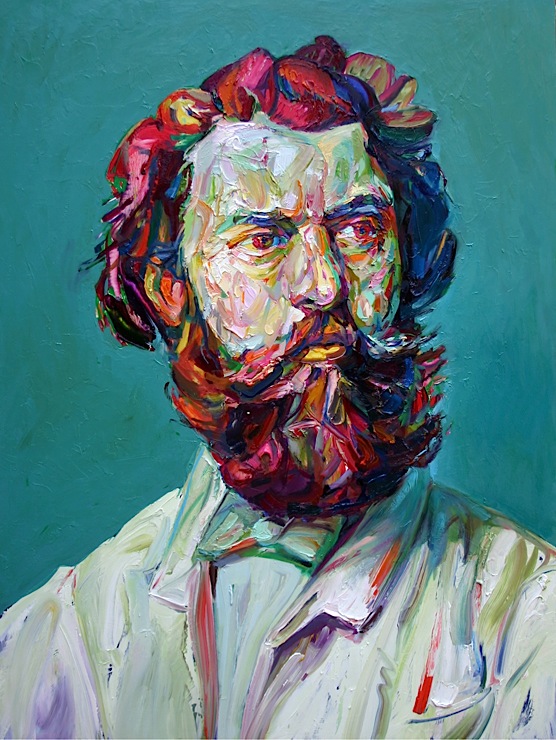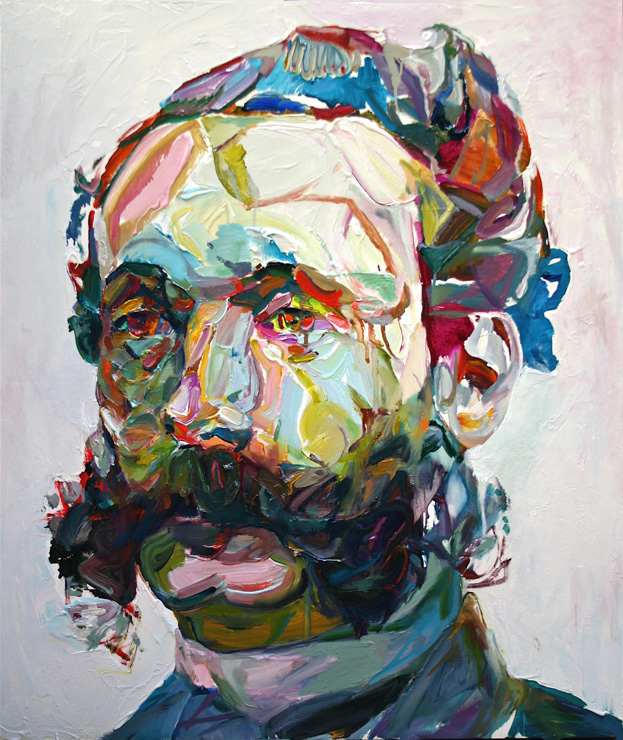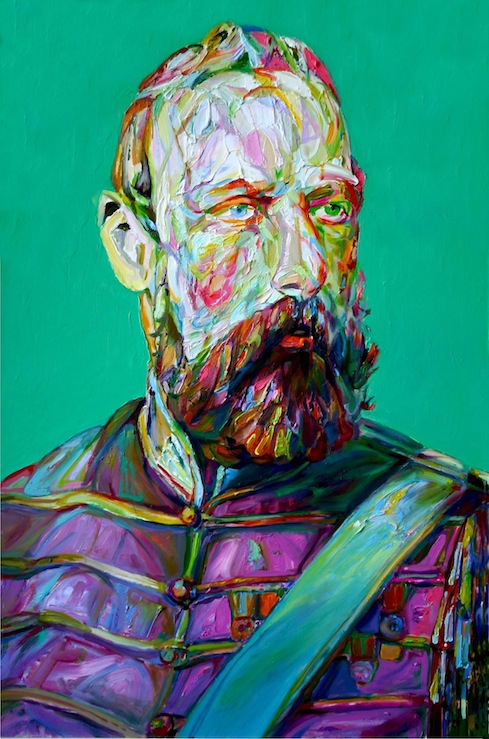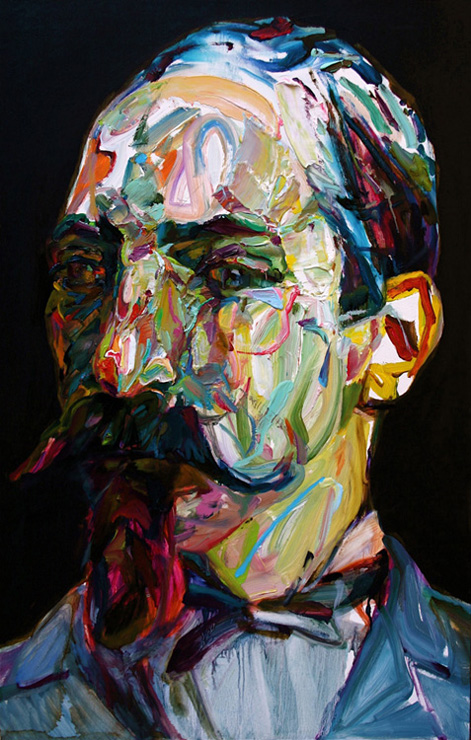Maybe in preparation for the production of God, many of you watched lots of Woody Allen. Forgive me if this is a reference you already know. I just happened to catch that Love and Death, Allen’s 1975 homage to Russian narratives, was showing on TCM tonight and thought I’d share this clip of (another) Sonya (Diane Keaton) and Boris (Allen) engaged in a philosophical debate.
Author Archives: Jules Odendahl-James
We’ll Rest.
Since we’re focusing on a theatricality versus historical realism, we’ve not spent much time discussing some of the political and social issues framing the lives of Russia’s rising middle-class in the late nineteenth-century. One post isn’t going to fill in those blanks, but Andy Chu (thanks Andy!) posted an article from Jacobin that discusses a relevant recent book: The Problem with Work: Feminism, Marxism, Antiwork Politics, and Postwork Imaginaries, by Duke Women’s Studies Professor, political theorist Kathi Weeks. As Fall Break approaches it also seemed an appropriate time to engage discourses of work and leisure in relationship to Uncle Vanya. I’ve not read Weeks’ book myself, so I’m relying on author Peter Frase’s (a PhD student in sociology at CUNY) take. Other responses to her book can be found here and here, and the entire introduction is online thanks to libcom.org.
Frase opens his review by framing the complicated world of “work” in the US today:
15 million people cannot find work, or cannot find as much work as they say they would like. At the same time, up to two thirds of workers report in surveys that they would like to work fewer hours than they do now, even if doing so would require a loss of income. The pain of unemployment is well-documented, but the pain of the employed only occasionally sees the light, whether it’s Amazon warehouse employees working at a breakneck pace in sweltering heat, or Foxconn workers risking injury and death to build hip electronics for Apple.
Frase then connects the narrowing certainty people feel over jobs and income to narrowing political imaginations (and political actions). Neither “side” seems to have sufficient solutions to the problems of work/employment and each blames various (often nefarious) interests for preventing their ideas or programs from succeeding or blames various individuals for avoiding or refusing “real” or “hard” work. Such rhetoric encourages individuals, business owners, and politicians to valorize particular kinds of intensive labor, which, in turn, are not interrogated for their legitimacy or the financial and personal health demands required to acquire, maintain and excel at such positions.
Frase introduces Weeks’ analysis by mentioning Marxist Paul Lafargue and his 1883 pamphlet “The Right to Be Lazy” in which he argued, among other things that “a politics for the working class must be against work.” Frase argues that Weeks digs deeper into this “dissident socialist tradition,” finding arguments for more work and better work lacking. By contrast, she advocates less work for all. And here’s where the connection to Uncle Vanya comes in and I’m going to quote from Frase’s review at length, drawing your attention to particular ideas:
At the dawn of capitalism, the call to work was a call to salvation, as Weeks explains in her reading of Max Weber’s The Protestant Ethic and the Spirit of Capitalism [1905]. She recognizes that, far from providing an idealist alternative to Marx’s account of the rise of capitalism, Weber complements historical materialism by describing the construction of a working class ideology. The word is used in Althusser’s sense: “the imaginary relationship of individuals to their real conditions of existence.” The Protestant ethic allowed workers to imagine that when they worked for the profit of the boss, they were really working for their salvation, and for the glory of God.
By the twentieth century, however, the calling had become a material one: hard work would ensure broad-based prosperity. Each of the century’s twin projects of industrial modernity developed this calling in its own way. Soviet authorities promoted the Stakhanovite movement, which glorified exceptional contributions to the productivity of the socialist economy. In Detroit, meanwhile, the social democratic union leader Walter Reuther denounced advocates of shorter hours for undermining the U.S. economy in the struggle against Communism. In neither case was the quality of industrial work called into question; it was simply a matter of who was in control and who reaped the spoils.
The industrial work ethic ran aground on the alienating nature of industrial labor. Workers who still remembered the Great Depression might have been willing to subordinate themselves to the assembly line in return for a steady paycheck, but their children were emboldened to ask for more. As Jefferson Cowie recounts in his history Stayin’ Alive: The 1970s and the Last Days of the Working Class, the 1970s were characterized by pervasive labor unrest and what was popularly called the “blue collar blues,” as “workers were harnessed to union pay but longed to run free of the deadening nature of the work itself.” In the realm of left theory, this development was reflected in the vogue for “humanist” critiques of work, rooted in the young Marx’s theory of alienation. Weeks highlights the Freudian-Marxist Erich Fromm, who argued that “the self realization of man . . . is inextricably linked to the activity of work,” which will again become authentic and fulfilling once it is freed from capitalist control. In recognizing the limitations of demanding more work, the humanists instead called for better work.
Given that Uncle Vanya was written at least 5 years before Weber’s Protestant Ethic was published, I don’t think Sonya is offering an ironic commentary on labor systems as much as she’s articulating a line of thought that has sustained her (and Vanya?) over the years. It an ethos echoed by our overworked, harried doctor, Astrov, and (probable) former-serf Marina throughout the play. (“People won’t remember, but God will.”) Given the 110+ years that have passed since both writings, however, I keep wondering how our audiences will respond to the invocation of work as salvation in this day and age. Again, I quote Frase at length:
[In] the precarious world of post-1970s capitalism, … individuals were encouraged to celebrate unstable jobs and uncertain income as forms of freedom rather than insecurity. Intangible benefits were offered as an alternative to a share in rising productivity, which became decoupled from wages. Thus we arrive at a third iteration of the work ethic in the post-industrial era, where work is now represented neither as a path to salvation nor as a road to riches, but as a source of personal identity and fulfillment. This ethic is exemplified by hip Silicon Valley firms like Apple, which reportedly told employees, in response to their wage demands, that “Money shouldn’t be an issue when you’re employed at Apple. Working at Apple should be viewed as an experience.”
In these circumstances, Weeks argues, calls for “better work” are not only inadequate, they tend to reproduce and extend a form of capitalism that attempts to colonize the lives and personalities of its workers. Hence “worker empowerment can boost efficiency, flexibility can serve as a way to cut costs, and participation can produce commitment to the organization . . . quality becomes quantity as the call for better work is translated into a requirement for more work.” Any attempt to reconstruct the meaning of work in a non-alienating way must begin, then, by rejecting work altogether.
[…] Like Weeks, [economist Guy] Standing is a proponent of an unconditional basic income—a regular payment provided to every individual regardless of whether or how much they work—as a way of providing income security without locking people into jobs. Yet he still grounds his appeal on the concept of work, now expanded beyond the boundaries of wage labor. […] “All forms of work should be treated with equal respect, and there should be no presumption that someone not in a job is not working or that someone not working today is an idle scrounger.” This evokes the notion of a social factory in which we contribute various kinds of productive activity that is not directly remunerated, ranging from raising children to coding open source software.
Two interesting things about this passage. First, in Switzerland this past week, campaigners collected enough signatures to force a public referendum on giving all citizens an “unconditional income” (roughly $2800 per month) as a response to increasing income inequality post-global financial crisis/recession. (This article from Philippe Van Parjis archived on the Boston Review site tells a bit more about the economic and social motivations behind UBI or universal basic income.) Second, the notion of the “idle scrounger” made me think of Waffles concern about being called a “moocher,” given that his relationship to the estate and the family seems largely undefined. Must one ‘work’ in ways that are legible as ‘work’ in order to be considered full or worthwhile citizens? And that question puts me in mind of recent problematic reports from This American Life‘s Planet Money team (March 2013) and on this past Sunday’s 60 Minutes program purporting to expose abuses of the system by those receiving disability payments. The reports have been roundly critiqued for their hysterical characterizations and faulty evidence (the best of these has been offered by Media Matters) that indict “scammers” and parasites instead of offering a much needed critique of profoundly dysfunctional national systems and images of labor, personal identity, and income inequality. This touches back on Frase’s review of Weeks:
The contrast between work and “idle scrounging” implies that we can measure whether any given activity is productive or useful, by translating it into a common measure. Capitalism has such a measure, monetary value: whatever has value in the market is, by definition, productive. If the critique of capitalism is to get beyond this, it must get beyond the idea that our activities can be subordinated to a single measure of value. Indeed, to demand that time outside of work be truly free is to reject the call to justify its usefulness. This is a central insight of Weeks’ consistent anti-asceticism, which resists any effort to replace the work ethic with some equally homogenizing code that externally validates the organization of our time. Time beyond work should not be for exchange or for use, but for itself. The point, as Weeks puts it, is to “get a life,” as we find ways “to sustain the social worlds necessary for, among other things, production.”
At that moment, I found myself reading Frase’s review and Vanya in the context of that paradoxical event – the Fall Break – wherein the time off from attending classes, rehearsals (!) and meetings is usually invested in “catching up” on work put off because of all the work that had to get done first. I’m always putting “break” in quotation marks. Now that technology makes it easier to for work to find me no matter where I go, the idea that I’m away from my office means nothing. FYI, I started this blog post in a coffee shop and finished it while sitting up in bed around 10:30pm.
There’s a section where Frase discusses the feminist nature of Weeks’ proposals: an unconditional basic income and shortening the work week. But more significantly than these ideas is recognizing the difficult (impossible?) process of detangling work practices from American’s identity as workers even if that detangling is offered in an effort to reconceptualize our relationship to basic rights and services as well as the fruits of our own labors no matter their material or non-material forms.
Elsewhere, Weeks remarks that we should not underestimate just how much hesitation about anti-work positions is rooted in fear. Fear of idleness, fear of hedonism—or to borrow a phrase from Erich Fromm, fear of freedom. It is relatively easy to say that in the future I will be what I am now—a worker, just perhaps with more money or more job security or more control over my work. It is something else to imagine ourselves as different kinds of people altogether. That, perhaps, is the unappreciated value of Occupy Wall Street encampments and similar attempts to carve out alternative ways of living within the interstices of capitalist society. It may be, as critics often point out, that they cannot really build an alternative society so long as capitalism’s institutional impediments to such a society remain in place. But perhaps they can help remove the fear of what we might become if those impediments were lifted, and we were able to make our exodus from the world of work to the world of freedom.
After my gloss of Frase’s gloss of Weeks’ book, I’m wondering whether I’m selling Sonya’s final cry a bit too short. It’s clear that she’s offering the image of salvation through work to Vanya. In that way, it’s wholly conservative and more than a bit pathetic. But the wonderful thing about theater is that we hear her say these words both in the past and present, in Vanya‘s world and our world. As such, do they allow us to imagine one end for Sonya and Vanya but a different one for ourselves? I wondered aloud during our table-work about the fact that the play’s one big “action”, [SPOILER ALERT for outside readers!] the Professor’s threatened sale of the estate, does not happen. The announcement causes havoc and transforms relationships, but actually cements the status quo relationships among Sonya, Vanya and the Professor. And, while that sad order is tragic, I’ve often wondered whether it’s also a kind of relief. So many characters seem to desire to break away from their confines but are utterly incapable of making things happen. It’s as if the break is too much, too traumatic to even attempt. So as much as they loathe where they are, even who they are, it’s the only life they’ve ever known so they might as well continue to work.
So if we want to refuse the fate of Sonya and Vanya, what might it mean for us “to rest” not in the afterlife but in the now? To stop and even transform the value (monetary and socially) we place on our work for forces which refuse to recognize our worth and, in turn, to refuse the idea of our lived lives as only self-sacrifice? What would we, could we do with our freedom?
And not the fun kind of absurdities either.
One need hardly amplify Chekhov’s indictment of the naturalistic theatre…The naturalistic theatre has conducted a never ending search for the fourth wall which has led it into a whole series of absurdities. The theatre fell into the hands of fabricants who tried to make everything “just like real life” and turned the stage into some sort of antique shop.
Meyerhold on Theatre. Trans. Edward Braun. London: Methuen, 1969: 30.
Lost and Found in Translation
h/t to Thomas for today’s New York Times’ Bookends feature today titled “What do you look for in a modern translation?” This question was posed to Bard College professor and author/essayist David Mendelsohn and film critic and writer Dana Stevens. Before we get to their opinions, I want to offer a few other assessments of our own translator — Annie Baker — and responses to her approach to Chekhov.
From Charles McNulty’s review of the Soho Rep’s production in the LA Times (Aug. 4, 2012):
This bridging of eras seems to have been the impetus behind the Baker-Gold production, which has become the sleeper of this globally warmed New York summer. Baker’s version of the play doesn’t radically update the work yet she gives the language an American suppleness that allows the cast members to appear as though they are spontaneously thinking the lines up on the spot. Like her “Circle Mirror Transformation,” produced at South Coast Repertory in 2011, this “Vanya” tries to capture the intense drama that is always lurking under the surface of everyday reality.
Baker and Gold’s perfectly matched aesthetic offers a contemporary means of fulfilling Chekhov’s oft-quote dictum about his art: “Let the things that happen on the stage be just as complex and yet just as simple as they are in life. For instance, people are having a meal, just having a meal, but at the same time their happiness is being created, or their lives are being smashed up.”
From Brian Scott Lipton’s review in TheatreMania (July 17, 2012):
but Annie Baker’s strikingly colloquial (yet remarkably faithful) translation. Her dialogue not only rarely feels anachronistic, but eliminates any distance we might feel from these universal characters first created over 100 years ago, but recognizable to — and in — each one of us.
From Clancy Martin’s review of the Soho Rep’s production in the July 3, 2012 issue of The Paris Review:
But what makes Baker’s translation and adaptation superior—in the writing—to any other Uncle Vanya I’ve read or seen is her insistence on strictly following Chekhov’s own maxim that the language should be as simple, authentic, and realistic as possible.
For example: after the doctor’s (Astrov’s) promise to quit drinking, Nanushka advises the excited Sonya that, for a man who has to travel and work in the dirty Russian villages, “It’s hard to stay clean and sober.” “Clean and sober” is an American cliché for the state of a recovered alcoholic. It’s the ordinary language anyone would use to describe someone who was off the bottle—especially the plainspoken, unreflective Marina Timofeyevna. But Baker makes it new—makes it worth listening to—he can’t stay “clean” because of the dirty Russian villages and peasants. When she speaks the American cliché she speaks it for Russian reasons. Baker practices this kind of astonishing verbal magic over and over again, and as a translator myself I was envious.
But she never uses slang terms: she never cheapens the dialogue, she doesn’t Americanize it in that unfortunate way so many filmmakers have tried to Americanize Shakespeare. Dachas are still dachas; peasants are still peasants. When Astrov complained about the destruction of forests and “climate change” I winced, and I worried for Baker: then I went to the text and in fact Baker had it right—Chekhov was just ahead of his time—Astrov does in fact express concerns about deforestation and its effect on the climate.
One more compliment on the writing: in many places, Baker follows the excellent, recent translation by Peter Carson [Carson passed away in January of 2013]. This shows her confidence. We translators are often tempted to change the work of a previous translator simply so that our own translation will differ from a previous (good) one, and this is always a mistake. Baker uses Carson where he gets it right; when she can use her own poetic gifts and vision to go him one better, she improves on his text. Because it is a play, she is not publishing it as a new translation, and so her heavy reliance on Carson is not an intellectual fault, it’s an artistic virtue.
I’ve bolded sections from these critics’ assessments above because they each reflect parts of my arguments to Jeff as we were pouring over translations starting last spring. As with Duke’s production of A Doll’s House in fall of 2011, I wanted to find the translation I felt most completely echoed the director’s vision for the production. In the case of Doll’s House, I became an early advocate for Byrony Lavery‘s version (which, like Baker’s is a “version” built on someone else’s–Margarita Shalina‘s–literal translation) because it offered the kind of overlapping and poetic approach to dialogue that captured the nervous energy that fills every corner of the Hellmers’ house. Characters didn’t start speaking in full sentences until Act 4 when Nora’s wall of lies comes crumbling down. In most of the other translations I’d read, that kind of full sentence self-composure was present from the very beginning. This evolution in pace and tone of language over the course of the play in Lavery’s version, I argued to Ellen, would allow audiences and actors the opportunity to make a very clear emotional as well as plot-driven journey. It would enhance and reinforce the movement-based work she was building and the contemporary POV we were taking on characters and their relationships.
I had a similar reaction upon reading the Baker. Not only did it read as a wonderful blend of Russian specificity and American modernity, but it had already been the foundation for a rather radical re-visioned production of the play at Soho Rep. Although I knew we were taking a 180-degree different turn from Sam Gold’s vision, I argued to Jeff that we were on solid ground given the successful experimentation that had been done with this text already. As with any well-loved and many-times translated piece, there are always things that I miss from other versions I’ve read; however, the cumulative positives of Baker’s choices married with our approach outweigh any nostalgia I might have for Schmidt or Friel or Hampton.
But what to Mendelsohn and Stevens have to say about translation? (Because that’s probably the reason you’re reading this blog!) Mendelsohn starts with this perhaps well known paradox of the art:
Every text is, to some extent, a bafflement to its translator, because every language, like every writer, has characteristics that can’t be “carried across” — which is what “translate” means — into another tongue, another culture. (Think of words like “chutzpah” and “chic.”) Traduttore traditore, the Italians pun: “The translator is a betrayer.” Yet translations must be made.
He then offers four criteria that for him no translation can afford not to consider: accuracy, sensitivity to formal considerations, texture and tone. I particularly love the way he uses tone to offer a more general piece of advice to all translators:
Aeschylus’ “Agamemnon” is notorious for its elaborate diction and inscrutable syntax — a murky Greek that nicely suggests the moral and political murkiness that is the play’s subject. When David R. Slavitt chose to pepper his 1997 translation of this titanic masterpiece with phrases like “learning curve,” “stress-related” and “Watch what you say, mister,” he was not only cheapening the diction but hamstringing the play’s larger meanings. Clytemnestra is not Joan Crawford.
Then again, “Watch what you say, mister” is great advice for all translators. Or in the words of Rilke — to elevate the tone a bit — “What, if not this deep translation, is your ardent aim?”
I’ve hyperlinked Mendelsohn’s review of Slavitt’s “updated” Agamemnon above so you can read more about his views on translations that keep reaching for “the modern”.
Stevens turns her attentions to two new translations of Homeric stories: Barry B. Powell‘s Iliad and Stephen Mitchell‘s Odyssey and talks about the immense duty and labor required to translate works of such immense gravity and history. She cites nineteenth-century poet and critic Matthew Arnold whose four qualities of translation (of Homer) echo those offered more generally by Mendelsohn:
Matthew Arnold gave a series of lectures on the problems of Homeric translation in which he compared and assessed multiple English versions, from Chapman’s to the 18th-century rendering by Alexander Pope, praised by Pope’s contemporary Samuel Johnson as “a performance which no age or nation can pretend to equal.” Arnold named four qualities a good translation of Homer must hold in balance: his rapidity, his plainness and directness in both language and ideas, and his “nobility.”
And, like Mendelsohn, Stevens finds aspects of these qualities lacking in various ways in new translations that are driven, in part, to make classic texts “accessible to impatient 21st-century ears”:
In Powell’s “Iliad,” a displeased Achilles poutily informs Agamemnon, “O.K., I’m off to Phthia.” Mitchell is also a believer in swiftness, eliminating many of the fixed epithets that give the Greek poem its stately rhythms, only occasionally allowing the dawn to show off her rosy fingers or Athena her flashing eyes. But Mitchell’s fresh, elegant diction and the care he lavishes on meter — turning the original dactylic hexameter into an irregular five-beat rhythm inspired in part by the late poems of Wallace Stevens — brought me closer to the transfigurative experience Keats describes on reading Chapman’s Homer: “Then felt I like some watcher of the skies / When a new planet swims into his ken.”
Of course as I read Stevens’ work, I couldn’t help of think about Phil whose senior distinction project next semester is a production of An Iliad, another version/vision of Homer’s text adapted by the actor Denis O’Hare and the director Lisa Peterson.
Most, if not all of you, read both the Schmidt and the Baker versions of Uncle Vanya. What do you think about the differences in their choices? Some, perhaps many of you, also read/write/speak multiple languages. What do you think about the process of translation as you may have encountered it in your classwork and/or personal/artistic life?
I eat Caucasian stews.
In our blocking of Act I today, I was reminded that I wanted to look up what might make a constant diet of “Caucasian stews” unhealthy, as Vanya claims. Certainly, hearty meals are necessary to survive the harsh Russian winters and on one site I found, the writer attributed the longevity of Georgians to their plentiful diet of dairy, meat and veggies. Just in case some of you with kitchens want to give these foods a try, especially as the temperatures outside turn colder, here are a few recipes:
Georgian Lamb Stew from My Humble Kitchen.com
- 2 lbs young lamb, cut into big chunks
- 1 tsp coarse salt
- ½ tsp freshly ground pepper
- 2 Tbsp olive oil
- 3 medium/large russet potatoes, peeled
- 2 medium onions, peeled
- 4 roma tomatoes (or 3 ripe tomatoes)
- 3 bell peppers (red, orange and yellow), seeded, stems removed
- 2 smaller eggplants (leave the skin on), ítems removed
- 1 bunch parsley, minced
- ½ bunch of fresh dill, minced
- 4 cloves garlic, peeled
- 1 quart chicken stock(you can substitute 1 cup of stock for 1 cup of red wine)
- 2 bay leaves
- 4-5 peppercorns
Method:
- Preheat the oven to 400F.
- Sprinkle the lamb with salt and pepper. Heat the olive oil in a heavy skillet and brown the meat on medium-high heat, 4-5 minutes per side. In the meantime cut all the vegetables in rounds of approximately similar thickness.
- Place the lamb on the bottom of a clay pot or a Dutch oven and Start layering the vegetables in the order they were listed in the ingredients. Add parsley and dill on top, along with whole garlic cloves. Press lightly with your palm.
- Pour the liquid (stock, or stock and wine mixed) into the pan with the lamb drippings, heated on medium temperature, and scrape the bottom to release all the delicious bits. Pour on top of vegetables, making sure they are submerged.
- Bake for 45 minutes and add bay leaves and peppercorns. Continue baking for another 15 or 20 minutes, until the meat is tender.
Georgian Ajapsandali: Eggplant & Pork Stew from the Cooking in Sens blog.
Ingredients
- 2 onions, chopped
- 1 handful of fresh garlic cloves, chopped
- 1 each red, orange, yellow bell peppers, sliced into strips
- 2 tbsp olive oil
- 1 lb ground pork
- 3 eggplant, cubed
- 1 lb small potatoes, skin on, cubed
- 3 bay leaves
- 1 large knob of butter
- 2 tbsp tomato paste, mixed with 6 tbsp of water
- 2 large tomatoes, chopped
- 1 tsp coriander
- 1 tsp smoked paprika
- 1/2 tsp crushed red pepper
- 1 1/2 tsp salt
- 1 tsp black pepper
- Scallions, chopped
Instructions
Saute the onions, garlic and peppers in the olive oil just until the onions begin to soften, then add the ground pork and cook until it is no longer pink.
Add the eggplant, potatoes, bay leaf and the knob of butter to the pan, stir well, cover and cook for 15 minutes, stirring occasionally. Add the tomato paste with water, the tomatoes, coriander, paprika, crushed red, salt and pepper, then stir well, cover and cook for another 10-15 minutes, stirring occasionally, until potatoes are done. Sprinkle with scallions and serve with flat bread.
Amolesili Lobio (Stewed Red Beans and Walnuts) from Saveur.com
I imagine one could make this a fully vegetarian option by swapping out the chicken stock for vegetable stock.
INGREDIENTS
1 cup toasted walnuts
½ cup olive oil
6 cloves garlic, finely chopped
1 medium carrot, finely chopped
1 large yellow onion, finely chopped
1 small red Holland chile, stemmed, seeded, and finely chopped
½ small leek, finely chopped
2 tsp. coriander seeds
1 tsp. hot paprika
1 lb. dried dark red kidney beans, soaked overnight and drained
12 cups chicken stock
½ cup finely chopped cilantro
¼ cup finely chopped dill
¼ cup finely chopped parsley
2 tbsp. red wine vinegar
Kosher salt and freshly ground black pepper, to taste
Country bread, for serving
INSTRUCTIONS
 Place walnuts and half the oil in a food processor; purée until very smooth, about 2 minutes, and set aside. Heat remaining oil in a 6-qt. saucepan over medium-high heat. Add garlic, carrots, onions, chiles, and leeks; cook, stirring until golden, about 10 minutes. Add coriander and paprika; cook until fragrant, about 1 minute. Add beans and stock; bring to a boil. Reduce heat to medium, cook, slightly covered, until beans are very tender, 2-2 ½ hours. Using a ladle, transfer half the beans to a blender; purée until smooth and return to pot. Stir in walnut purée, cilantro, dill, parsley, vinegar, salt, and pepper; serve with bread on the side.
Place walnuts and half the oil in a food processor; purée until very smooth, about 2 minutes, and set aside. Heat remaining oil in a 6-qt. saucepan over medium-high heat. Add garlic, carrots, onions, chiles, and leeks; cook, stirring until golden, about 10 minutes. Add coriander and paprika; cook until fragrant, about 1 minute. Add beans and stock; bring to a boil. Reduce heat to medium, cook, slightly covered, until beans are very tender, 2-2 ½ hours. Using a ladle, transfer half the beans to a blender; purée until smooth and return to pot. Stir in walnut purée, cilantro, dill, parsley, vinegar, salt, and pepper; serve with bread on the side.
Would this study change Chekhov’s mind about academics?
In a study published yesterday in the journal Science, social psychologist researchers from The New School for Social Research in NY have found that reading literary fiction (as opposed to popular or non-fiction writing) has a greater impact on a subject’s understanding of emotional nuances, which, in turn, improves real-life skills like empathy and understanding the beliefs and intentions of others. The study summary published in The New York Times‘ “Well” blog opens with a paragraph that immediately leaped out at me and might have caught your attention as well.
Reading Chekhov for a few minutes makes you better at decoding what other people are feeling. But spending the same amount of time with a potboiler by Danielle Steel does not have the same effect, scientists reported Thursday.
[…]
In the study, […] people who read excerpts from literary fiction (Don DeLillo, Alice Munro, Wendell Berry) scored better than people who read popular fiction (Gillian Flynn, Rosamunde Pilcher, Mary Roberts Rinehart) on tests asking them to infer what people were thinking or feeling – a field that scientists call “Theory of Mind.”
People who read literary fiction also scored better than people who read nonfiction (in this case, pieces published in Smithsonian Magazine, like “How the Potato Changed the World”). Interestingly, when subjects were asked, they said they did not enjoy literary fiction as much as popular fiction.
And in two experiments, some participants read nothing at all before taking the tests, yet performed as well as the participants who read popular fiction. Both of those groups made more mistakes on the tests than literary fiction readers, reported the researchers, Emanuele Castano, a psychology professor, and David Comer Kidd, a doctoral candidate.
“It’s a really important result,” said Nicholas Humphrey, an evolutionary psychologist who has written extensively about human intelligence, and who was not involved in the research. “That they would have subjects read for three to five minutes and that they would get these results is astonishing.”
Dr. Humphrey, an emeritus professor at Darwin College, Cambridge, said, “I would have thought reading in general” would make people more empathetic and understanding. “But to separate off literary fiction, and to demonstrate that it has different effects from the other forms of reading is remarkable. I think it’s going to generate a lot more research and I hope it’s going to generate some discussion in education.”
The report of this study’s findings raised a few questions for me, not the least of which being what’s the need for data to reinforce a point that English majors, their professors, and book lovers have argued for ages? I almost immediately answered that question with a reminder about the new Common Core standards being implemented in American schools, especially the addition of attention on non-fiction texts, which has been met with consternation (some from teachers, much from conservative politicians) about whether this shift will diminish the time spent teaching literature. Of course, since Chekhov wrote across genres (short stories, plays, articles, and what could be classified as early ethnographies) maybe he’s the key to bringing these different factions together. He’s already triumphed over the academics he lampooned in his pieces by becoming such a revered object of study for so many. On the other hand, I love imagining what kind of story he’d make out of this research, those who conduct it, and those who use its data for news reports and public policies.
Breaking Bad — No Spoilers, Nick. I Promise.
This little gem from one of my favorite actors showed up in my Facebook feed today. Given the Breaking Bad discussion that was happening in our breaks last night, I thought I’d share it with you all. Don’t worry Nick. It contains no series finale spoilers. The only thing it does spoil is any notion that Bryan Cranston has a massive ego to go along with that massive talent.
http://youtu.be/zMKyrgNQK4c
Let us now praise Carol Apollonio
I want to thank Professor Apollonio for coming to last night’s rehearsal and re-rooting us in the Russian context of Chekhov and Uncle Vanya. As I said at the start of rehearsals, as a production dramaturg one is constantly hoping to become enough “expert” to support the work until the next play, the next period, writing and performance style when one quickly gathers a different sent “expertise” as she moves into the next project. So I am utterly grateful for the support of scholars like Professor Apollonio and John Wright (who came in last week to work with us on pronunciation) for providing expertise that is grounded in years of focused research and direct experience with our playwright and his culture and language.
It’s especially gratifying to be able to fact-check some of the more oblique references within the text. For example, learning that the Russian root of Yelena’s name means “lazy”, reminding us to consider that the absence of Sonya’s mother is the long-range catalyst for events in the play itself, and how Chekhov casts beauty and love in the figures of Yelena and Sonya.
I also thought of two moments where my own reading felt less than secure given the many layers of translation (language, time period, & culture) Baker’s text has gone through. So I sent Carol a follow-up message after last night’s rehearsal, and I’m very glad.
I first asked her about that moment early in Act I when Vanya goes on his first tirade about the professor (pg. 31) and he quotes from an unknown source:
With tired minds and furrowed brows/We write ode after ode/Not for ourselves/And not for the praise we’ll never hear.
I’ve been operating as if Vanya is quoting the Professor’s own hackneyed writing especially as he follows this line with “I feel sorry for the paper.” But Professor Apollonio informed me
Vanya quotes (inexactly, but recognizably) an 18th-century sentimentalist writer Ivan Dmitriev [from Jules — forgive the Wikipedia link but all the other materials are in books or behind paywalls]. These are the 2nd and 3d lines from a satirical poem mocking sycophantic (and boring) ode writers of his day (from the collection “At Second Hand” [Chuzhoi tolk]). “These writers slave away at their writing, but their hard work is not appreciated.” Your translation gives the basic meaning. The quote itself has a more stuffy and archaic feel (“having strained our minds, having furrowed our brows, with zeal we write…”), so the actor could feel free to lay it on thick. Since the professor writes academic prose, not poetry, the quote adds a thicker layer of bitterness and satire by referring to odes from 100 years ago.
So I got the basic purpose of Vanya’s quote correct but not the reference. Vanyas please make note of this change.
The second question — attention Phil — was in reference to a quote slung by the Professor himself at the end of Act IV when he’s parading himself out of the house. He says,
He who dwells in the past shall have his eye plucked out.
In this case it didn’t seem to be the Professor’s own prose that he was quoting but I was unsure if it was referencing material from known poet or writer. I’d been operating under the impression that it might be a kind of folksy saying or proverb and Professor Apollonio confirmed that reading:
it’s a Russian idiom. Your translator has rendered it fairly literally–but of course it’s hard to make this line work. The basic meaning is “let bygones be bygones.”
And that information just adds to the irony and irritation I think we’re encouraged to feel for the Professor as he leaves the scene and the estate. He’s so full of forgiveness for all the disaster his presence has largely set into motion. Not quite as ire-inducing as the “Do something with your lives” line. But close.
Again, a massive thanks to Professor Apollonio. If you have have other questions that dawned on you after last night or if you have them about translation context or cultural context, feel free to email her directly at flath@duke.edu or email me and I’ll pass the query along. You can also catch her “What Would Dostoyevsky Do” columns in The Chronicle every other Tuesday.
I don’t eat meat. That makes me strange.
Happy World Vegetarian Day!! In observation, NPR had a story today about the 115-year-old Zurich restaurant Hiltl, “the world’s oldest continually operating vegetarian restaurant,” and its founders, early customers, and latest offerings.
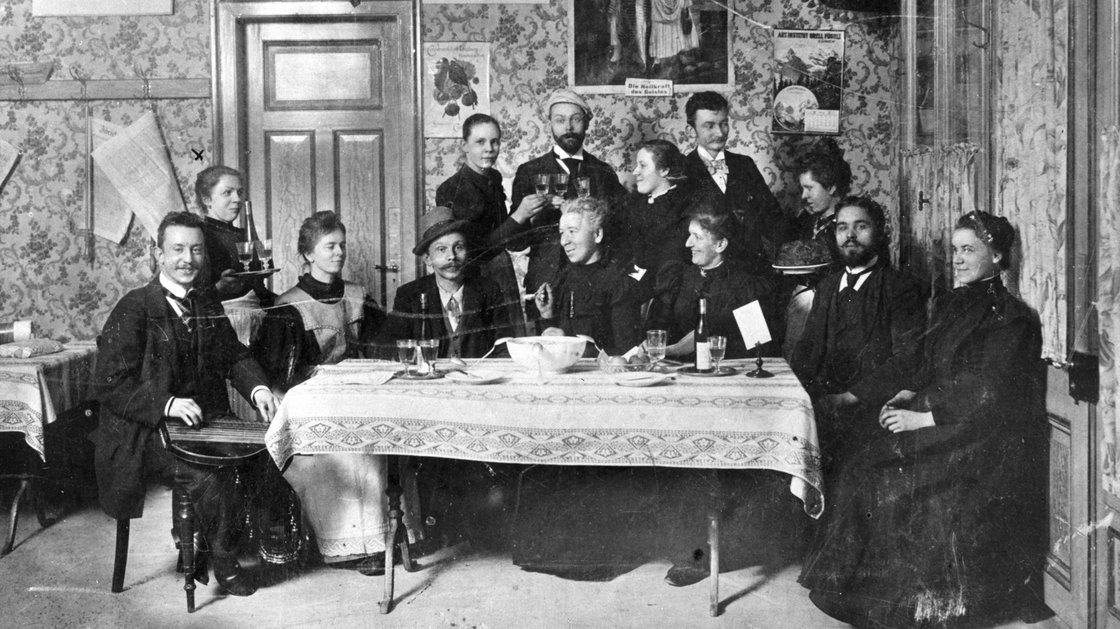
“This gang founded Zurich’s Vegetarians’ Home and Teetotaller Cafe in 1898. Ambrosius Hiltl bought the joint and changed the name in 1903.” NPR.
The details about its early days struck me for how they touch on both Astrov (in terms of the atypical choice to go meatless at that time) and the Professor (in terms of vegetarianism being offered as a medical treatment for various ailments like rheumatism).
“The first several years, people entered Hiltl through the backdoor,” says Peter Vauthier, the head of Hiltl guest relations.
The Swiss, you see, have long been a pretty meat-loving bunch. “If you didn’t eat meat, it meant you had no money,” he says. Vegetarianism, in other words, was kind of a badge of shame.
But that didn’t deter Ambrosius Hiltl. Back in the 19th century, the Bavarian cobbler was working in Zurich when he adopted a vegetarian diet to alleviate joint pain from rheumatoid arthritis. The advice came from a doctor who followed the school of thought that a diet of raw vegetables, fruit and nuts could heal most ailments. That was an idea popularized by Maximilian Bircher-Benner, a Swiss physician and nutritional theorist best known for inventing muesli.
Lucky for Hiltl, Zurich had an option for budding vegetarians like him: the Vegetarians’ Home and Teetotaller Café, which had opened its doors in 1898. Not exactly the kind of name that draws crowds, but Hiltl nonetheless became a frequent diner. Eventually, he decided to buy the joint. Hence, Hiltl — a Zurich institution — was born.
The original menu may have been vegetarian, but it wasn’t especially healthful. Dishes were essentially regular recipes served without meat. Potatoes, rice and flour-based foods featured heavily, […]
The original vegetarian restaurant had been in business for five years before Hiltl took over in 1903, continuing to serve a motley — and largely female — clientele. The meatless menu attracted artists and writers, as well as those with ailing health and the religiously observant.
100+ years later, the restaurant has become one of Switzerland’s largest restaurants seating over 500 on three floors with a bar, nightclub, and cooking classes for patrons. Of course its popularity has meant a return to some of those unhealthful offerings before Hiltl took over in 1903:
Many of [today’s] Hiltl customers aren’t vegetarian. They just like the concept of an international buffet with fresh, quality food served in a trendy environment, which also explains why some of Hiltl’s unhealthiest fare is the most popular. One top seller: meatless Zürich Geschnetzeltes with Rösti, a typical Swiss dish usually made with small pieces of veal and mushrooms in a cream sauce, served with crispy potatoes.
The story doesn’t give the calorie count for the meatless version, but the average for the traditional recipe averages about 500 total calories with 300 of those coming from fat. But at least it continues to be one of the few fully Kosher, high-end restaurants in the city. Field trip anyone?
And I’ve grown this huge mustache.
I know many of you trying to grow facial hair for the show are feeling the weight of Astrov’s line, so I thought I’d offer some inspiration in the form of the paintings of Aaron Smith, a fine art painter and the Associate Chair of the Art Center College of Design in Pasadena, California.
His recent work:
uses his own collection of Victorian/Edwardian era photographs of men who represent (or at least are posed in ways that represent) a masculine ideal. To further enhance the contrast between their spectacular facial hair and formal dress with their stiff poses and dour demeanor, Smith transforms his black & white/sepia photos into large-scale expressionistic portraits with colors inspired by Birds-of-Paradise and “the extravagantly decorated Huli Wigmen of Papua New Guinea.” While our set is not in this exact palette, I do see bright touches of blue, blue-green, yellow, and orange-red in the photos Jeff & Sonya identified as the central touchstones for our production.
A few more in Smith’s series:
I wish you all strong and bushy follicles.







